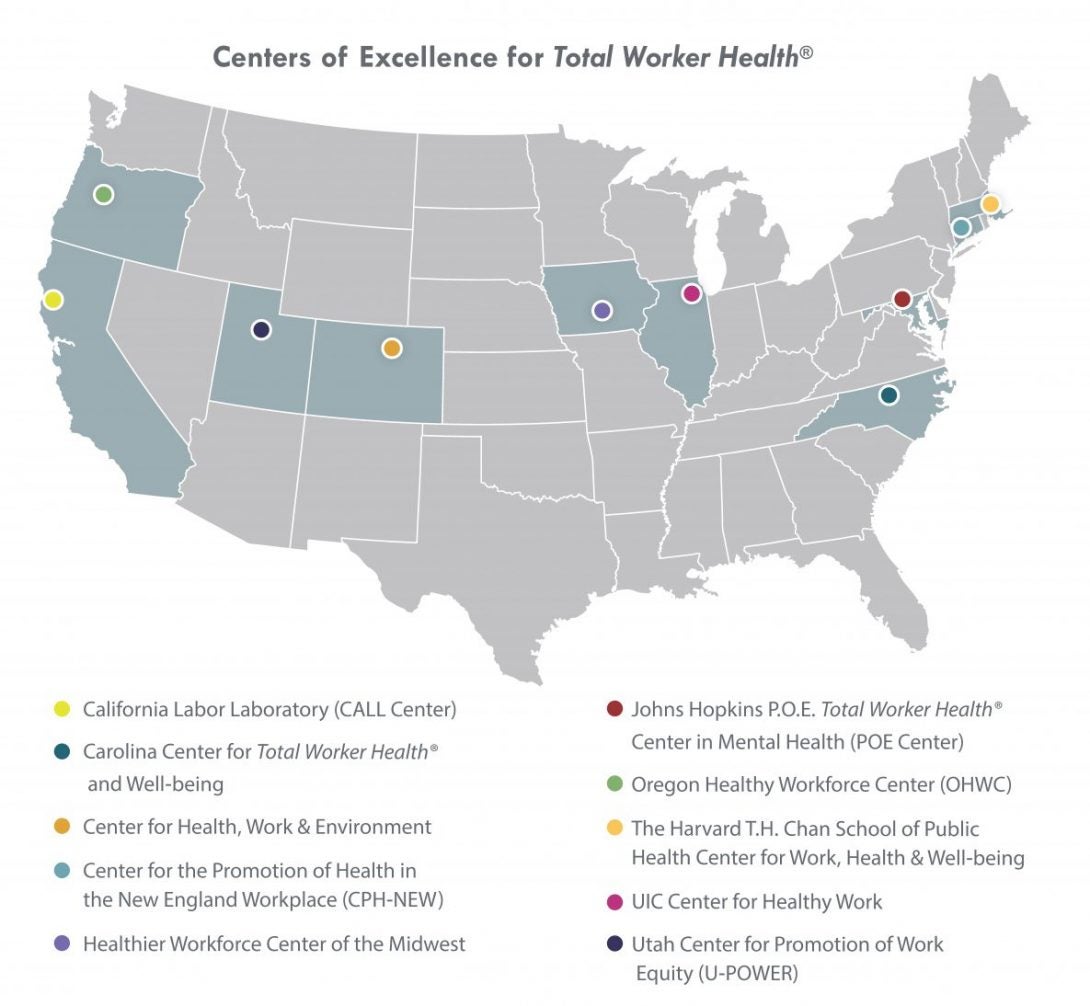Total Worker Health®
What is Total Worker Health?
Total Worker Health is defined as policies, programs, and practices that integrate protection from work-related safety and health hazards with promotion of injury and illness prevention efforts to advance worker well-being. Total Worker Health is a holistic approach to worker well-being. It acknowledges risk factors related to work that contribute to health problems previously considered unrelated to work. The Total Worker Health approach seeks to improve well-being in the American workforce for the benefit of workers, employers, and the nation by protecting safety and enhancing health and productivity.
The health risks and challenges facing today’s workers and employers are significantly different than when the Occupational Safety and Health Act of 1970 was signed into law. Today’s workers face not only the traditional risks of chemical, physical, and biological hazards but also increased risks related to the changing nature of work, shifting workforce demographics and diversity, evolving employment patterns, and the changing workplace environment.
Building on four decades of scientific knowledge to prevent worker injury and illness and as an active part of the National Occupational Research Agenda (NORA) priority areas, the National Institute for Occupational Safety and Health Total Worker Health Program supports ground-breaking research that addresses the implications of today’s changing workplace and responds to demands for information and practical solutions to the health, safety, and well-being challenges that workers face.
Total Worker Health Resources
NIOSH Centers of Excellence for Total Worker Health

The UIC Center for Healthy Work is one of ten CDC national Centers for Excellence of the NIOSH Total Worker Health Program.
NIOSH funds ten Centers of Excellence (Centers) to conduct research on the concepts of Total Worker Health. The Centers advance knowledge by building the scientific evidence base through research and practice that aims to improve the overall safety, health, and well-being of the diverse population of workers in our nation. The Centers use multidisciplinary research projects, including intervention-focused research, outreach and education, and evaluation activities to improve our understanding of which solutions work. The Centers’ research examines the integration of occupational safety and health protection with workplace policies, programs, and practices to advance worker safety, health and well-being.